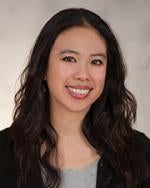Addressing the issue of whether the US Patent and Trademark Office (PTO) is entitled to recover attorneys’ fees in connection with the defense of a § 145 appeal, the US Court of Appeals for the Federal Circuit answered in the affirmative, reversing the district court’s denial of attorneys’ fees. Nantkwest, Inc. v. Matal, Case No. 2016-1794 (Fed. Cir., June 23, 2017) (Prost, CJ) (Stoll, J, dissenting).
Under 35 USC § 145, an applicant dissatisfied with a Patent Trial and Appeal Board decision may appeal directly to the district court, and regardless of the outcome, the applicant must pay “[a]ll of the expenses of the proceeding.” After prevailing on the merits, the PTO filed a motion for fees. The district court granted the motion with respect to expert fees, but denied it with respect to attorneys’ fees, citing the American Rule, which provides that litigants pay their own attorneys’ fees unless a statute or contract provides otherwise. The district court concluded that § 145’s “all expenses” provision was neither specific nor explicit enough to authorize recovery of attorneys’ fees. The PTO appealed.
On appeal, the Federal Circuit stated that it had “substantial doubts” that § 145 implicates the American Rule, and disagreed with Nantkwest’s argument that courts must apply the American Rule’s requirements to all fee statutes irrespective of a prevailing party. Nevertheless, the Court concluded that even if the American Rule did apply, the “expenses” at issue included the PTO’s attorneys’ fees.
In reaching that conclusion, the Federal Circuit found support in the ordinary meaning and definition of “expenses” in legal dictionaries and treatises: “expenditure[s] of money, time, labor, or resources to accomplish a result.” The Court also cited treatises that defined the term “expenses” to include attorneys’ fees. Further, the Court cited the distinction between costs and expenses that the Supreme Court of the United States made in Taniguchi: “costs” represents only a fraction of “expenses,” and the term “fees” includes “expenses borne by litigants for attorneys.” The Court noted that the law does not require Congress to use any particular term or phrase, such as “compensation,” “fee” or “attorney” (or some equivalent), to satisfy and meet the American Rule’s requirement.
Moreover, the Federal Circuit reflected on the uniqueness of § 145, which requires that applicants name the director of the PTO as defendant to their suits. The majority goes on to characterize the resources—such as lawyers and supporting paralegals—that the director utilizes to defend the PTO’s interests in these suits as overhead costs to the government because the solicitor, deputy, associates and paralegals receive fixed salaries as compensation. Because these parties do not bill hours for their work or collect fees from those whom they represent, the Court characterized the overhead associated with their work as an “expense” rather than a “fee,” rejecting Nantkwest’s view that the government should only be allowed to recover such expenses as printing, travel and expert witness costs. In the Court’s view, that would ignore the vast majority of the expenses (attorneys’ fees) that the PTO “incurred as the proximate cause” of the appeal.
In a lengthy dissent replete with citations to Supreme Court authority, Judge Stoll explained that he would invoke the American Rule, where “each party in a lawsuit ordinarily shall bear its own attorney’s fees unless there is express statutory authorization to the contrary.” In Stoll’s view, the 1983 Supreme Court case Hensley v. Eckerhart “erects a strong presumption against fee-shifting, requiring an explicit provision permitting a departure from the American Rule or other evidence of congressional intent to make such an award available.” Noting that § 145 neither mentions attorneys’ fees nor reflects a congressional intent to authorize them, Stoll concluded that the statute “fails to provide the necessary congressional directive to overcome the American Rule’s bar against shifting attorneys’ fees.”




 />i
/>i

